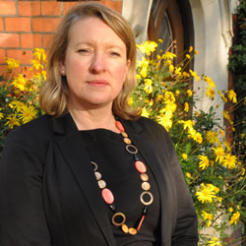The review of the Charities Act should re-examine the way that Attorney General’s references play out in the sector, according to Charity Tribunal president Alison McKenna.
Addressing an audience of Charity Law Association members last week, McKenna (pictured) said she was delighted to see the Charity Tribunal included in the terms of reference for the Charities Act review, having complained about “problems with its architecture” since its creation.
“There’s a dissonance between our remit and the way we are set up to deliver it,” she said.
She said the review should examine why so few cases had come to the tribunal so far.
“We’ve accepted 22 or 23 cases into the system over the three years, against an original estimate of 50. Why is this? Is it about the knowledge of the tribunal by the sector? Or its advisers’ reluctance to use it? Or is it something the Charity Commission is doing - taking cases into internal review and dealing with them there? Are they not making decisions, or not making clear whether they have made a decision or not? Those are all issues that need to be unpicked.”
She also hoped Lord Hodgson would re-examine Attorney General’s references – “whether references are quite the right mechanism and whether they are set up in the right way”.
“I wonder whether the statutory provisions are clear enough about what they are and what the outcome is. All the Act says is that the tribunal hears and determines the reference, it doesn’t provide anyone with a remedy, as such. There’s no process for issuing a declaration that binds anybody in relation to references, you just hear and determine it.
“I wonder whether just the tribunal issuing its decision is what the sector wanted in terms of the development of the case law and feeding back into the process. I wonder if there could be some kind of duty on the Charity Commission to take on board the determination of a reference and put it back into its work, or issue some guidance or consult on guidance or something? Create a virtuous circle.
“Otherwise I worry that the determination will be made and then there’ll be a long process of argument about how its’ then implemented. Although it takes effect as a precedent, there have been debates about who is bound by it, and I think it should be looked at again.”
McKenna added that she was “interested” in the idea of a charity ombudsman – “although it’s important to note that ombudsmen investigate maladministration giving rise to injustice, they don’t retake decisions, so it’s a very different function to that of the Tribunal.”
Tribunal 'doesn't have to be expensive'
However, she refuted a claim by former Charity Commission policy chief Rosie Chapman in a blog on civilsociety.co.uk, that the tribunal is expensive for charities to use.
“I think any system is expensive if you instruct a firm of solicitors and two barristers to represent you through it,” she said. “But most tribunal cases in other jurisdictions don’t have lawyers. We can be low-cost if people choose to use us in a low-cost way. Hopefully charities are getting the message that they don’t have to be represented.”
However, she accepted that charities that have been involved in tribunal cases thus far undoubtedly felt their “backs were against the wall” and that their very existence was threatened, so it is not surprising that they wanted legal representation. “If they want to spend money on it, it wouldn’t be right for me to prevent them from doing so.”
She concluded: “I am keen on this review, I haven’t given up on the tribunal yet and I hope you haven’t.”









